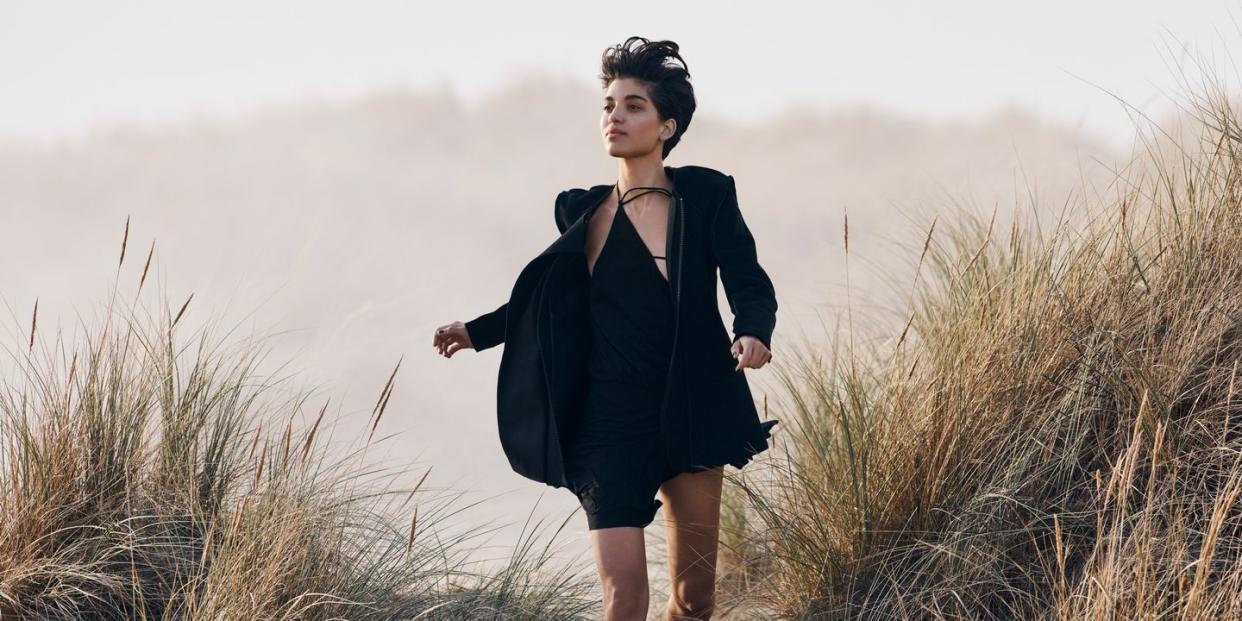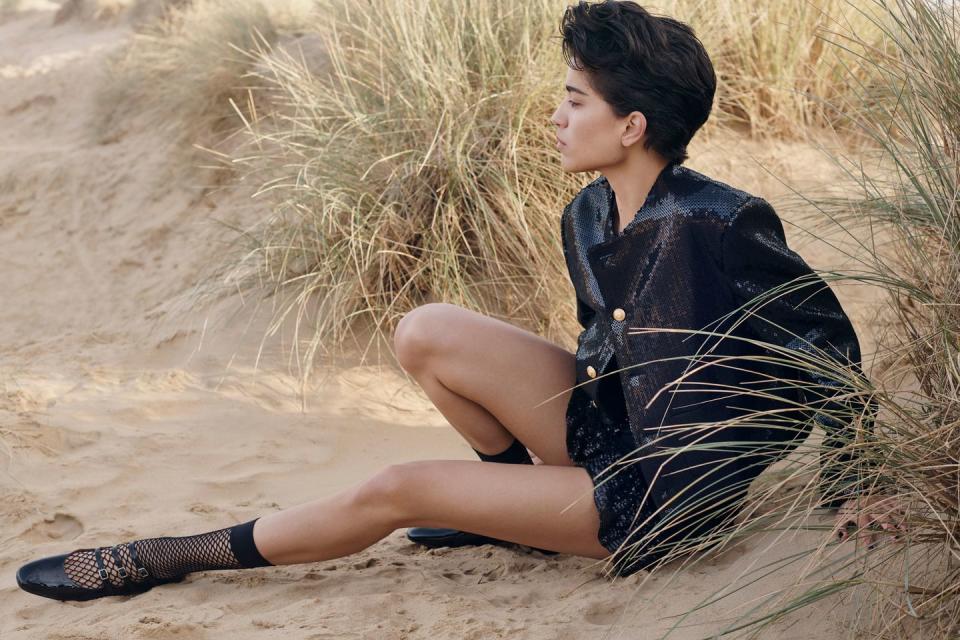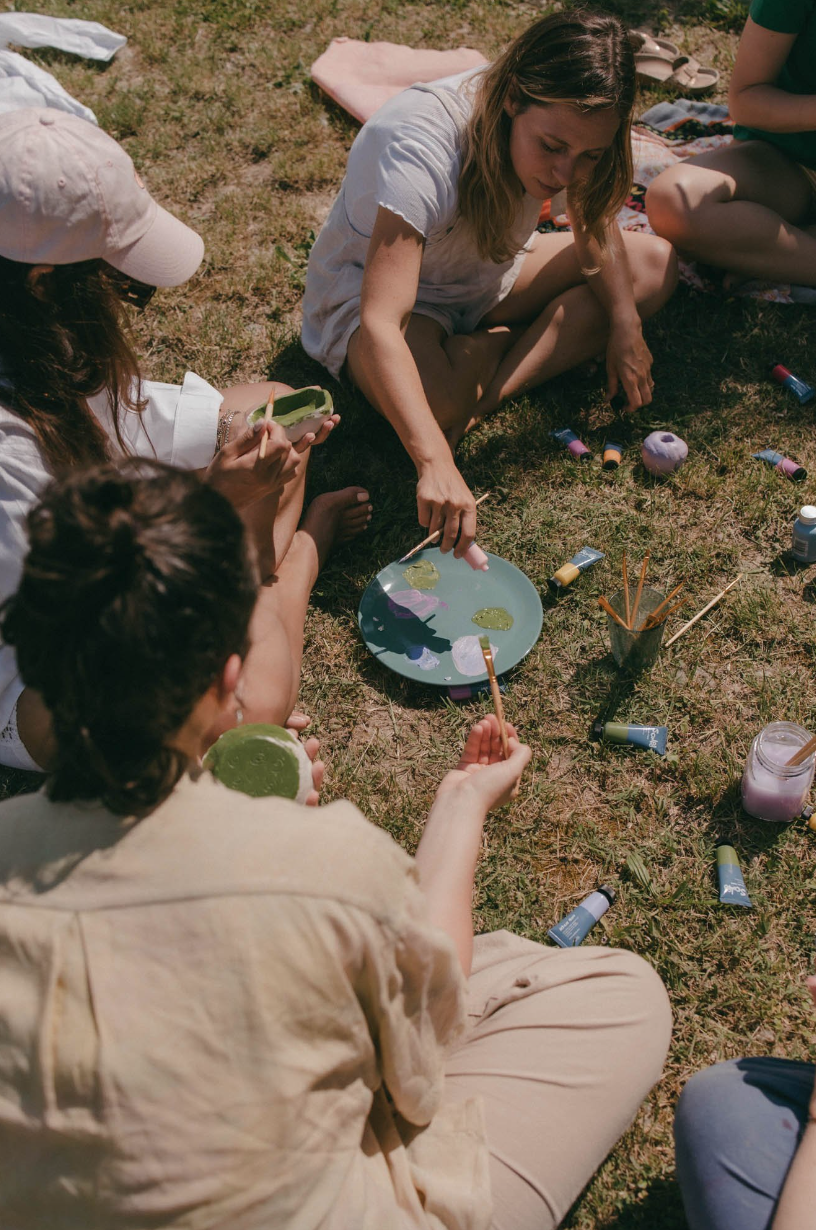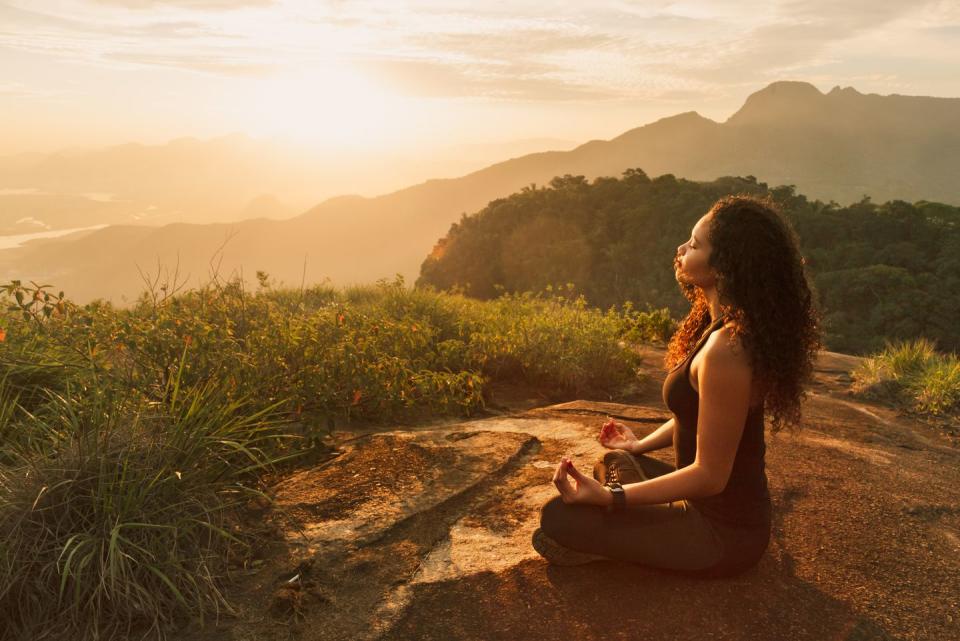From Biohacking Camps To Sexual Wellness Retreats, When Did We Forget How To Have A Holiday?

Close your eyes and picture the scene. You're on a small, deserted beach in Spain and it smells like sunscreen, sweat and the Mediterranean Sea, which laps softly at your feet. Far away from the rattling reality of your everyday existence, you’re lying on a towel damp with seawater while the sun kisses your face as you devour wilted books, pages crisped by the sun, and dig into seemingly endless bags of greasy, salty crisps. Your one and only hazy, sun-soaked aim is to revel in a slow and sleepy world far removed from your own, where you don’t have to do anything other than top up your sunscreen, reach for a cocktail or turn the pages of your book. That, dear reader, is my dream – to spend delicious stretches of time doing absolutely zilch. In fact, there’s a phrase for it in Italian: dolce far niente. The sweetness of doing nothing. But something has happened to our beloved holidays, which has seen the art of doing very little replaced by the art of doing absolutely everything.
I have friends who, while I perfected the art of getting nothing done in the sun, turned their attention to jam-packed, wellness-focused, activity-oriented breaks as we grew older and their bank balances healthier. One did a yoga retreat with her mum, after which she boasted about the weeks’ worth of 6am starts she’d spent the price of a small car on. By 7am every day – the middle of the night, as far as my holidays are concerned – she was on her second yoga class, her first turmeric shot and my last nerve. She was meant to be on holiday. It didn’t stop there. Another friend booked an artist’s retreat in a château in the South of France, for which she shelled out an eye-watering sum only to spend the week partaking in ‘bonding exercises’ with other, in her own words, ‘creatively stunted Londoners’. Another decided on a fitness retreat in Ibiza that incorporated six-hour stints of fitness in peak Balearic sunshine followed by a vegan, Paleo ‘feast’, the very idea of which I baulked at. It seemed the aim of these retreats was to ‘get away’ and also, paradoxically, very much have something to show for it at the end. At what point did we forget how to just... take a break? Whatever happened to the great ‘drop and flop’ nothing-cation of yesteryear? When did we start going on holiday to keep busy?
FIND OUT MORE ON ELLE COLLECTIVE
Salt-therapy retreats, laughter camps, crying breaks (yes, really) and colon-cleanse holidays – you name it, there’s a retreat for it (even if the latter does sound more of a threat than a holiday). It has been estimated by global luxury-travel network Virtuoso that 94% of travellers are incorporating elements of self-care into their travels, and 59% are embarking on designated wellness getaways. Among the new frontiers of the retreat realm are sexual-wellness retreats – coming to a social-media feed near you in summer 2024 – and biohacking getaways. Six Senses Ibiza recently teamed up with biotech company RoseBar to offer guests full diagnostic testing, while the home of the inaugural season of The White Lotus, the Four Seasons Resort in Maui, now administers treatments such as stem-cell and NAD+ (an anti-aging coenzyme) therapy through its partnership with Next Health. It’s estimated that the industry of wellness tourism is expected to grow more than any other wellness sector and increase by 21% by 2025, at which point it would be worth $1.3 trillion (£1.1 trillion). Where once we parked ourselves on plastic deckchairs, umbrellas wedged into the sand beside us, to restore our burned-out brains, today we ‘retreat’. The message, it would seem, is get away to get ‘better’. Because time spent doing nothing – on a sun-dappled beach in Spain, for example – is time wasted.

As with most things in modern culture, the roots of this shift can be traced back to the pandemic. Its enforced isolation sharpened our senses to the rapid passing of time. A survey conducted in the UK revealed that more than 80% of participants felt their perception of time shifted during the last months of lockdown, while a nationwide Gov.uk survey from 2021 found that 80% of people aged over 18 wanted to change their lifestyle. If Covid taught us anything, it was that health trumps everything, which makes the sharp rise in wellness-focused tourism understandable. ‘Since the pandemic, there’s a general increased awareness around wellness. Travel companies have noticed this, and are capitalising upon it by offering people breaks that they claim will be a cure-all solution for whatever it is they’re dealing with,’ says travel psychologist Charlotte Russell.
‘As someone who works for myself, it feels almost impossible to separate my work and personal life – they’re inherently one. That makes it hard to completely switch off, which is where retreats come in as, for me, they marry work and rest perfectly,’ says artist Venetia Berry, who also co-founded Sol Creative Retreats, which are designed to help women unlock creativity through yoga, painting, ceramics and cooking classes.

The allure of self-optimisation might entice many, but given that, according to the charity Mental Health UK, 91% of adults have experienced high or extreme levels of pressure or stress at some point in the past year, is it time we, ahem, retreated from the retreat and returned to the gentle getaways we used to love? There is evidence that the tide might soon turn. Last year, Expedia predicted the rise of the ‘nothing-cation’ after finding that one in four of us feel in need of going on a holiday dedicated to recharging our batteries. Its research also showed that more than half (54%) of us associate doing nothing on a holiday with relaxation. Recently released data from TUI Blue seems to corroborate the idea that many of us are yearning for a return to fuss-free, faff-free breaks. The platform has established that there are five types of ‘holidaymaker’, the most common of which are those who identify as ‘relaxers’.
Research from Advantage Travel Partnership, the UK’s largest network of independent travel agents, has revealed a similar trend. The all-inclusive, the forebear of the ‘drop and flop’ holiday, remains its most popular type of break, accounting for 38% of the trips
already booked this year. ‘Despite shifts in the industry, where people might want to engage with their wellness more, our numbers do not indicate anything other than, in a lot of cases, people want to get away, talk to no one, sit on a beach and take in the sun,’
says Julia Lo Bue-Said, CEO of Advantage Travel Partnership, before suggesting that outside of major UK cities, there appears to be little desire to embark on designated wellness retreats.
Culturally, the art of doing nothing is creeping back into our consciousness. Jenny Odell’s 2019 book How to do Nothing was a New York Times bestseller and was named as one of the best books of the year by a cadre of publications, including The New Yorker and Time, and NPR. The book is a meditation on Odell’s ‘refusal to believe that our lives are instruments to be optimised’. In it, she writes, ‘To do nothing is to hold yourself still so that you can perceive what is actually there.'

As Gordon Hempton, an acoustic ecologist who records natural soundscapes, puts it: 'Silence is not the absence of something but the presence of everything.' One year after Odell’s release came Annette Lavrijsen’s offering, Niksen: The Dutch Art of Doing Nothing, which focuses on Niksen, the Dutch philosophy of ‘doing nothing’.
The irony of these wellness-focused, be-your-best-self breaks is that often the most restorative thing a person can do for their mind, body and soul is to spend time doing nothing. ‘Nobody books a retreat to rest, and I think that’s the big misconception about them. If I’m going on a holiday, I need no pressure and no commitments,’ says Kaiva Kaimins, 28, the founder of Dalston-based florist My Lady Garden and online educational platform Ladygarden World. ‘If I were to book a retreat, I’d be booking it because I’d be wanting to dedicate time to a craft or pursuit or a new experience, or I’d be wanting to engage with people or be active, or whatever it might be. But I wouldn’t be doing it to rest.’ Instead, Kaimins’ preference is for a beach holiday, the most recent of which she enjoyed in January in the mellow Mexican beach resort of Tulum, when she slept, swam, ate, drank and, in her own words, ‘totally switched off from my manic day-to-day of running a business’. Kaimins’ point is reiterated by further findings from Expedia, which found that more than half (61%) of Brits feel the pressure to book excursions or activities they don’t want to do during their time off in order to bolster their social credentials.
Of course, that’s not to say that there isn’t a place for retreats in the world of travel. A retreat has the power to cater to the specific wants and desires of a smaller audience in a way that a generic beach holiday doesn’t. Oya Retreats, which was founded in 2016 by Dr Stacie Graham, calls itself ‘a holistic wellness experience for Black women and women of colour who want to commit to their healing and wellbeing journey.’ Avolve Wellness, which was founded by Kelley Robertson in 2023, is a retreat designed specifically for neurodivergent people and their caregivers. Robertson was inspired to establish the retreats after struggling with the fact that, while on her favourite beachside ‘nothing-cations’, her neurodivergent son couldn’t be left unaccompanied.
We might all be desperate for a detox, but once upon a time, before the age of poolside IVs and morning meditations, summer holidays existed as an escape in which, for a small sliver of time, we could exist in another place as a more relaxed version of ourselves. These were breaks that were about piercing our everyday routines with injections of sun, sea and sand, and feeling our tightly wound muscles collapse with relaxation. Because if there’s one thing our quivering nervous systems don’t require in order to reset themselves, it’s pre-dawn Pilates, Paleo food and the expectation of doing absolutely anything at all. Then again, that’s just us...
ELLE Collective is a new community of fashion, beauty and culture lovers. For access to exclusive content, events, inspiring advice from our Editors and industry experts, as well the opportunity to meet designers, thought-leaders and stylists, become a member today HERE.
You Might Also Like


